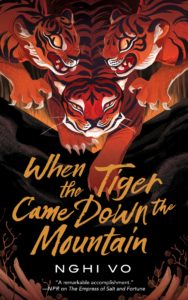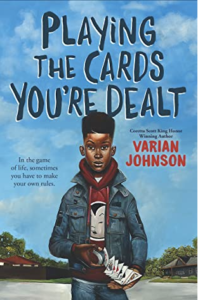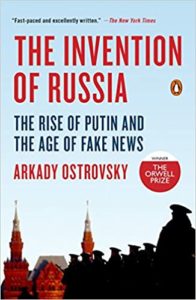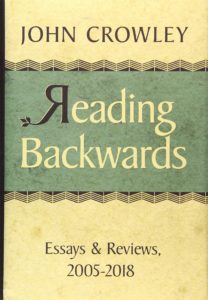I went and checked, and Lewis Shiner never did reconcile with his father. Terrible fathers feature so prominently in several of his novels — Glimpses (1993), Outside the Gates of Eden (2019) and Black & White (2008); maybe also the other three that I’ve read, but it’s been so long that I do not remember for sure — that it was impossible for me not to think that there was a real-life model behind them. In Glimpses the protagonist’s father is dead from the start of the book, so no reconciliation is possible. In Eden the break between Cole and his father is also irretrievable, but the novel offers positive alternatives, particularly in the Montoya family, and it follows its characters long enough that some of them become parents themselves, trying to do better.
Black & White changes the dynamic a bit: The father wants desperately to reconcile with his son Michael, or at least to explain, but cannot bring himself to say so directly. He is dying of cancer but insists on moving from Dallas, where the family had moved when Michael was an infant, to Durham, North Carolina for his final days. Robert, the father, and Ruth, the mother, met there, though they grew up in different parts of the state. Robert was from Asheville, where his parents had worked as servants on the Biltmore estate; Ruth was from rural Johnston County, where her father was a farmer and a local bigwig. They married in 1962, and Robert started a career in construction, working as an engineer for a company that was key to building the Interstate through Durham, before the three of them suddenly moved to Texas and cut off all contact with Ruth’s family. Michael thinks that his father is trying to say something by going back to Durham to die, something that will explain the cold home he grew up in, something that will fill in the blank pages where most people have a book of family history. Black & White is the story of what he finds out.
Intertwined with the personal story of Black & White are stories of power and race, and economic change, in the American South. Durham had been an agricultural center, and then a hub for collecting tobacco and manufacturing products from it, mostly cigarettes. By the early 1960s, though, the mills and the headquarters of the tobacco companies had all left, and the city’s economic lifeblood had nearly all drained away. North Carolina’s research triangle, which drives Durham’s economy today, was still sketches on a civic booster’s whiteboard. To make that happen, roads — Interstates — connecting the cities of the triangle had to be built, and those roads had to go somewhere. And where it went was right through the thriving Black business district of Durham, called Hayti (pronounced “Hay-tie”). Robert’s company was the one that tore down most of Hayti. As Ruth says when the time comes for her to finally tell her story:
Now Robert was the reluctant hand of that [destruction]. She knew it didn’t sit well on him, and she wished she could ease his mind. It wasn’t like there was another way for this to turn out. Durham needed the highway so people could get to the new business park. The city would die without it. The highway was going to displace somebody, anywhere you put it. It only made sense that it was the poor people that had to move. It would cost a hundred times more to buy up rich people’s houses.
They told Robert a new, better Hayti would rise from the ruins, and he wanted to believe it. Ruth let him, and never said a word about her father’s prophecy. Between the word of Mitch Antree [head of Robert’s company and devotee of Hayti] and the word of Wilmer Bynum [Ruth’s white supremacist father], she knew which would prevail. (pp. 288–89)
Black & White begins and ends in 2004, but goes back to the 1960s in two long sections that tell the stories of Robert and Ruth. Michael learns much about both of his parents, including many things that neither ever told the other. It is a rich and satisfying novel, one that explains people without excusing them, that shows the contradictions that people live with, and how people facing similar constraints and opportunities make different choices. Even within Durham’s Black community, for example, there were different views about Hayti, different responses to its destruction. Shiner captures both eras, bringing life and complexity to pictures that are often seen in black and white.
(Spoilers follow about what Michael learned.)
Continue reading










